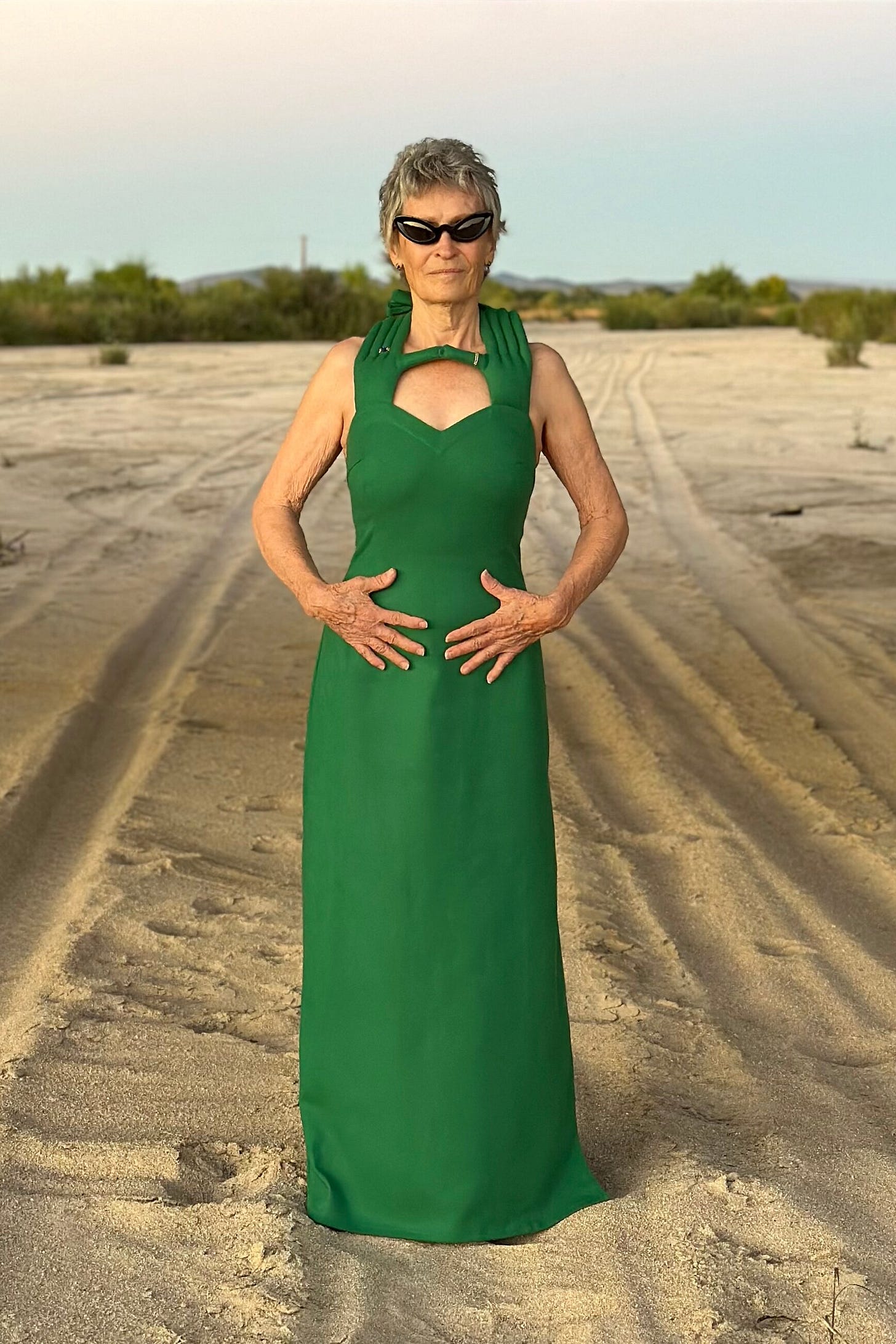Are you excited about Paris Fashion Week, which begins on February 26? Me neither! Instead, let’s take a sharp detour and head to the anti-PFW: a Los Angeles clothing-and-accessories brand called Fashion Brand Company.

Until I read a New York Times article by Jessica Testa about the company last week, I’d had no inkling of Fashion Brand Company. (Gift link bypasses the NYT paywall.) It’s not entirely new, though: It was launched in 2018 by Penelope Gazin, an artist who originally made the clothes in her Altadena apartment and boxed and shipped the orders herself. For what appeared to be a quirky private art project, the merchandise sold surprisingly well, and the company now has 13 U.S. employees and another “32 full-time-with-benefits garment workers in Guangdong, China,” Testa wrote.
The clothes (and accessories, like some very intriguing bags and sunglasses) are witty and playful and a little bizarre and sometimes downright disturbing; they come in a generous range of sizes and are often made from deadstock fabrics or scraps. The website’s About page proclaims “a commitment to our burning doomed Earth” and boasts — although I’m not sure “boasts” is the right word — that “we are 90% angel, 10% environmental lazy girl (in terms of fabric and material choices).” The company’s YouTube channel evinces a mysterious fixation on lizards.
So what name would you have chosen for this enterprise? Someone other than Penelope Gazin might have leaned hard into quirkiness and gone with, oh, Lizardress or Lazy Girl, Inc., or even Enveloped by Flames. Or she might have borrowed from her family heritage (keep reading).
But Gazin seems to have recognized that the riskiest, most subversive name she could choose was the most generic one, the one that sounds like the creation of a rather dim chatbot: Fashion Brand Company. (The only name more on the nose would have been Trademark: Impossible.)

I hadn’t heard of Fashion Brand Company before last week, but I had heard of Gazin’s previous business: Witchsy, an online art-and-craft marketplace similar to Etsy but open to “occult offerings,” which Etsy disallowed. I remembered reading in 2017 that Gazin and her co-founder, Kate Dwyer, had invented a fictional male partner, Keith Mann, to communicate with outsiders via email. “In exchange after exchange, the perceived involvement of a man seemed to have an effect on people’s assumptions about Witchsy and colored how they interacted with the budding business,” Fast Company reported. “One developer in particular seemed to show more deference to Keith than he did to Dwyer or Gazin, right down to the basics of human interaction.”

And although I hadn’t known until I read the Times article that Gazin’s grandfather was Barnaby Conrad, I definitely had heard of him. Conrad (1922-2013) was a well-known San Francisco character, an amateur bullfighter and professional artist and author who published a novel, Matador, and then opened a North Beach nightclub called El Matador. He was great pals with San Francisco Chronicle columnist Herb Caen, who dropped Conrad’s name frequently in his columns. After Caen’s death in 1997 Conrad published The World of Herb Caen: San Francisco 1938-1997, a tribute to the master of the three-dot gossip item.
Gazin may not be fighting bulls or hosting jazz singers, but her brand of artistic eccentricity is solidly in the Conrad tradition. Even if it does bear the blandest brand name imaginable.





Get the vest!